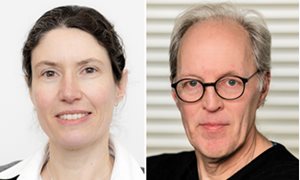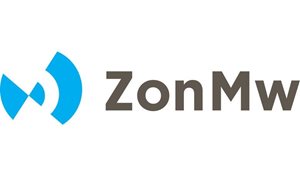An innovation born out of frustration can give a huge boost to laboratory research into new treatments and medicines. Researchers Martijn Verdoes, theme Nanomedicine, and Bas van der Schoot, theme Cancer development and immune defense, together with Ferenc Scheeren, Leiden University Medical Centre, developed a technique to engineer and produce antibodies quickly, easily and cheaply. "This new technique will open up the field." The researchers published their results in the open access journal Science Advances.
Antibodies play a crucial and growing role in cancer treatment, immunotherapy and diagnostics. Antibodies recognise a cancer cell or another cell very specifically. Fundamental researchers also use antibodies in their research and in the development of new therapies. At present, however, producing and engineering antibodies is a lengthy, specialized and expensive process, which is consequently carried out mainly by biotechnology companies.
Easy, cheap and fast
This is a source of great frustration for researchers such as Scheeren and Verdoes. "We have all kinds of ideas for new research, but we were hampered because we couldn't engineer antibodies ourselves", Scheeren explains. The recent CRISPR-Cas technology offered a solution. "Using this new technique, we can easily, quickly and cheaply introduce genetic modifications in cells continuously producing large amounts of antibodies, so called hybridoma cells. This enabled us to produce large quantities of antibody variants to which we have made a variety of functional modifications, in a short period of time", says Bas van der Schoot, first author of the article.
Enthusiastic response
The researchers believe that their discovery breaks open the field for the use of antibodies in the research phase. “Tinkering with an antibody can provide a great deal of information about its mode of actions”, says Verdoes. “We can also introduce completely new elements and learn step by step how to make the antibody increasingly effective for clinical use. Using our technique, this can now be done at low cost and in a short period of time."
Several fellow-researchers have already responded enthusiastically, according to Scheeren. "Almost every laboratory able to culture cells – and there are many of them – can use this effective technique." The researchers therefore make their reagents publicly available on the addgene.com website.
This project has received funding from the European Research Council (ERC) under the European Union’s Horizon 2020 research and innovation programme (grant agreement No 679921).
Related news items

ZonMw Open Competition Grant for Annemiek van Spriel and Piet Gros
15 June 2021 Annemiek van Spriel, theme cancer development and immune defense, together with Piet Gros, Dept. of Chemistry, Utrecht University obtained a ZonMw Open Competition Grant to investigate IL-6 receptor structure and signalling in tumor cells. go to page
HFSP Grant for Johannes Textor
30 March 2020 Johannes Textor, theme Cancer development and immune defense, has been awarded a program grant of 1 million US dollars by The Human Frontier Science Program (HFSP) to investigate how T cells navigate extremely dense environments using experiments, modeling and methods from pedestrian dynamics. go to page
Human pDCs attract cytolytic lymphocytes in anti-cancer vaccination
6 February 2020RIMLS researchers Jasper van Beek and Jolanda de Vries, theme Cancer development and immune defense, discovered that pDCs can efficiently recruit cytolytic immune effector cells, a property that could be exploited in anti-cancer vaccines. They have published these findings in Cell Reports.
go to page
ZonMw funding for teams of Michiel Vermeulen and Jolanda de Vries
4 February 2020The awarded research projects of RIMLS researchers Michiel Vermeulen, Jolanda de Vries, Gerty Schreibelt and Martijn Verdoes and colleagues will initiate new research lines and collaborations between various research groups.
go to page
Niels Stensen Fellowship for Jorieke Weiden
6 January 2020 Jorieke Weiden was recently awarded a grant from the Niels Stensen Fellowship. Since the 1960s, the Niels Stensen Fellowship has been awarded annually to outstanding researchers who recently received their PhD to enable them to gain research experience at a top university or institute abroad. go to page
